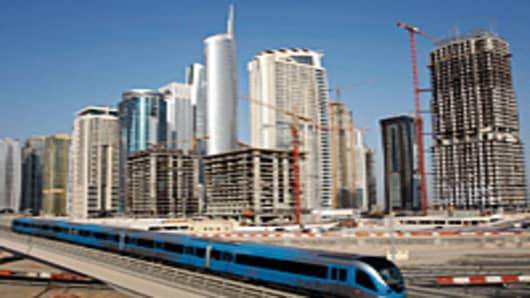What many Westerners may know about the Middle East—vast oil reserves, the flush, or failing, Dubai, traditional values, and its unmistakable downside, terrorism roots and the limited opportunities for women—falls far short of what the vast region has to offer investors.
Whatever your impressions, the Middle East is overflowing with lucrative investment opportunities, in part because it has been slower to develop than other parts of the world.
Equally important for investors are the yet-untapped youth and consumer markets.
Infrastructure, infrastructure, infrastructure is key for billionaire Nassef Sawiris. Egyptian Sawiris is his country’s richest man and the CEO of the Middle East’s largest construction company. It was his firm that built Burji Khalifa, the world’s tallest building, which opened in January in Dubai on Palm Island. (See video of the skyscraper here).


